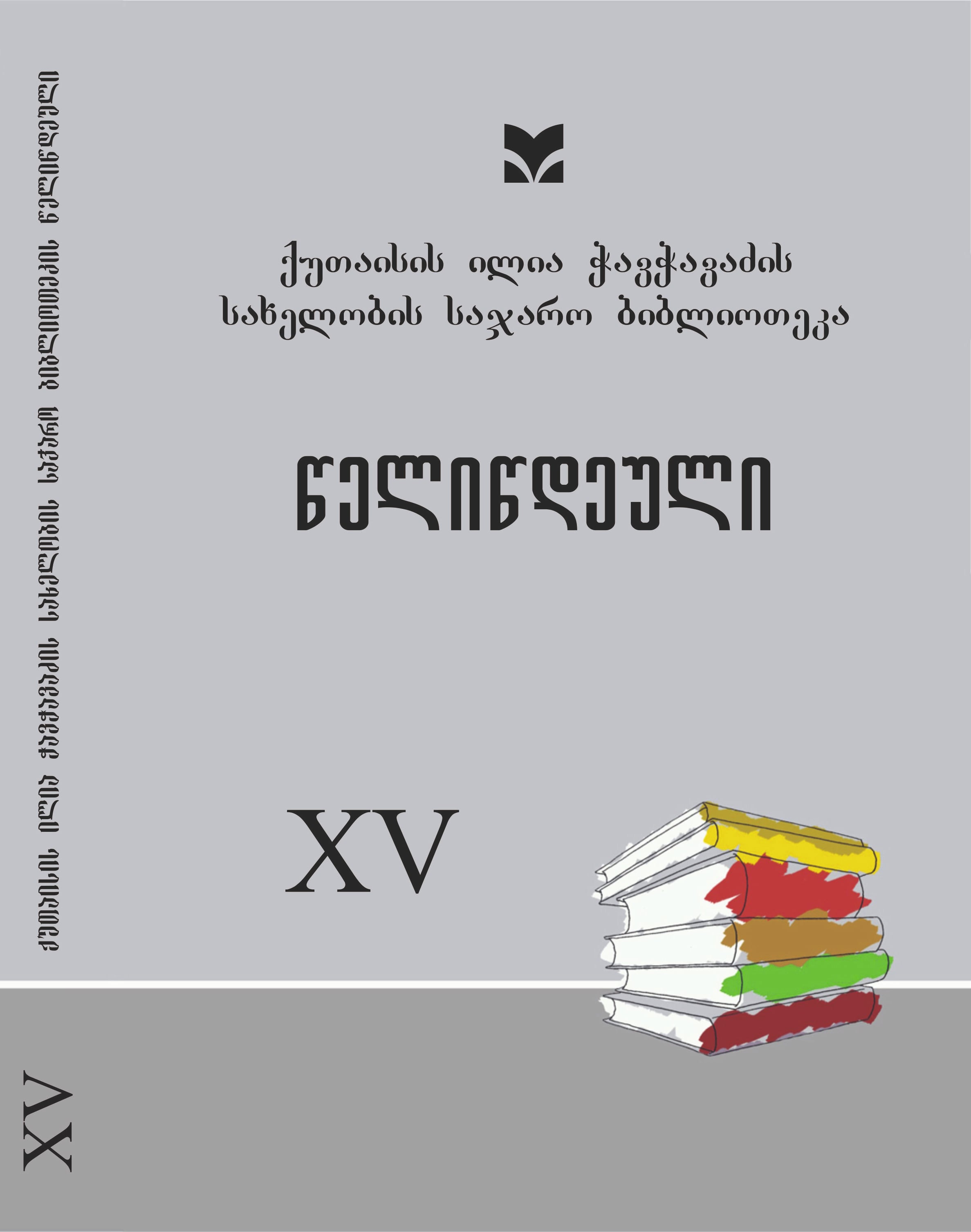Two poems in Akaki Tsereteli’s poetry („Imeretian Nanina“, "Imeretian Song“)
DOI:
https://doi.org/10.61491/yk.15.2023.8029Keywords:
20th-century Georgian poetry, Akaki Tsereteli’s poems: „Imeretian Nanina“, „Imeretian Song“Abstract
This study investigates the lasting signifificance of Akaki Tsereteli›s poetry, focusing on „Imeretian Nanina“ and „Imeretian Song“. It delves into the poet’s worldview, exploring how it surpasses the limitations of the 19th century and connects
with contemporary national and global concerns.
Akaki Tsereteli›s prolifific and varied body of work tackles a wide range of themes. Notably, he confronts the social and political realities of his era head-on. With a sharp eye for societal issues, he analyzes problems that remain relevant today.
„Imeretian Nanina“ exemplififies this. The poem seamlessly blends past, present, and future. It reflflects the Georgian spirit of a bygone era, with echoes still present, urging the reader to focus on building a brighter future. Importantly, the poem champions core values like individual liberty, social equality, and universal education – all essential ingredients for a nation›s well-being. These concerns, which deeply troubled Akaki Tsereteli, continue to be central to national and global discourse in the present day.
The poem also elevates the Georgian woman as a symbol of the motherland. It emphasizes her role in nurturing future generations and guiding them towards a brighter future. This nurturing spirit, compared to the Virgin Mary, is depicted as a
source of strength and hope for the nation.
Furthermore, „Imeretian Nanina“ underscores the importance of individual freedom. It argues that a just social order necessitates individual liberty, free from oppression and defifined by one›s own will and moral compass. This concept resonates not only with Akaki Tsereteli›s time but also with the ideals of a free and just society in our interconnected world.
The exploration of themes continues in „Imeretian Song“, composed in 1876. Here, Akaki Tsereteli captures the essence of Georgian national identity. He weaves a complex tapestry of emotions – love, sadness, pain, disappointment, and hope –
that reflflect the historical experiences of the Georgian people. Akaki Tsereteli›s own internal struggles with hope and despair, love and loss, imbue his work with a poignant depth that continues to resonate with readers.




